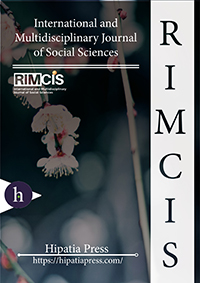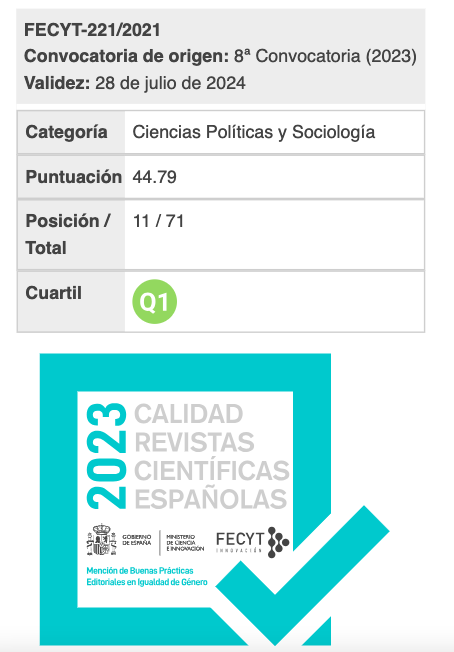Long-term Societal Impacts of Conditional Cash Transfers: Bolsa Família a Decade in
Keywords:
Downloads
Abstract
Conditional Cash Transfers (CCTs) are innovative poverty intervention programs that have been adapted and adopted in dozens of countries around the world. The effectiveness of the programs in the short-term have been established by a number of studies, but they have only recently been around long enough to begin to observe whether they indeed disrupt the inter-generational poverty cycle as claimed. The expected long-term effects are central to the appeal of CCT programs. This empirical study examines the data to determine whether there is evidence that the long-term effects are as apparent as the short-term effects in one of the original adopters, Brazil. The analysis examines municipal level government data using OLS regression and finds evidence that CCTs raised 8th grade graduation rates and lowered unemployment and birthrates. The conclusion is that, at least in Brazil, CCTs seem to be making headway in changing conditions that often lead to inter-generational poverty cycles.
Downloads
References
Acemoglu, D., & Robinson, J. (2012). Why Nations Fail: The Origins of Power, Prosperity, and Poverty. New York: Crown Business.
Google Scholar CrossrefAdato, M., Devereux, S., & Sabates-Wheeler, R. (2016). Accessing the “Right” Kinds of Material and Symbolic Capital: the Role of Cash Transfers in Reducing Adolescent School Absence and Risky Behaviour in South Africa. Journal of Development Studies, 388(June), 1–15. http://doi.org/10.1080/00220388.2015.1134776
Google Scholar CrossrefAlderman, H., Hoddinott, J., & Kinsey, B. (2006). Long term consequences of early childhood malnutrition. Oxford Economic Papers, 58(3), 450–474. http://doi.org/10.1093/oep/gpl008
Google Scholar CrossrefBaird, S., Chirwa, E., Mcintosh, C., & Ozler, B. (2010). THE SHORT-TERM IMPACTS OF A SCHOOLING CONDITIONAL CASH TRANSFER PROGRAM ON THE SEXUAL BEHAVIOR OF YOUNG WOMEN. Health Economics, 19, 55–68. http://doi.org/10.1002/hec
Google Scholar CrossrefBaird, S., Ferreira, F. H. G., & Özler, B. (2013). Relative Effectiveness of Conditional and Unconditional Cash Transfers for Schooling Outcomes in Developing Countries: A Systematic Review. Campbell Collaboration.
Google Scholar CrossrefBaird, S., McIntosh, C., & Özler, B. (2011). Cash or condition? Evidence from a cash transfer experiment. Quarterly Journal of Economics, 126, 1709–1753. http://doi.org/10.1093/qje/qjr032
Google Scholar CrossrefBanerjee, A., & Duflo, E. (2012). Poor Economics: A Radical Rethinking of the Way to Fight Global Poverty. New York: Public Affairs.
Google Scholar CrossrefBarham, T. (2011). A healthier start: the effect of conditional cash transfers on neonatal and infant mortality in rural Mexico. Journal of Development Economics, 94(1), 74–85.
Google Scholar CrossrefBeck, T., Demirgüç-Kunt, A., & Levine, R. (2007). Finance, inequality and the poor. Journal of Economic Growth, 12(1), 27–49. http://doi.org/10.1007/s10887-007-9010-6
Google Scholar CrossrefBehrman, J. R. (1996). The Impact on of Health and Nutrition on Education. The World Bank Research Observer1, 11(1), 23–37.
Google Scholar CrossrefBittencourt, M. (2010). Financial development and inequality: Brazil 1985-1994. Economic Change and Restructuring, 43(2), 113–130. http://doi.org/10.1007/s10644-009-9080-x
Google Scholar CrossrefBonelli, R. (1999). A note on foreign direct investment and industrial competitiveness in Brazil. Oxford Development Studies, 27(3), 305–327. http://doi.org/10.1080/13600819908424180
Google Scholar CrossrefBosch, M., Goni, E., & Maloney, W. (2007). The Determinants of Rising Informality in Brazil: Evidence from Gross Worker Flows (Policy Research Working Paper No. WPS 4375).
Google Scholar CrossrefBryan, J., Osendarp, S., Hughes, D., Calvaresi, E., Baghurst, K., & van Klinken, J.-W. (2004). Nutrients for Cognitive Development in School-aged Children. Nutrition Reviews, 62(8), 295–306.
Google Scholar CrossrefBursztyn, L., & Coffman, L. C. (2012). The Schooling Decision : Family Preferences , Intergenerational Conflict , and Moral Hazard in the Brazilian Favelas. Journal of Political Economy, 120(3), 359–397.
Google Scholar CrossrefCardoso, A. R., & Verner, D. (2006). School Drop-out and Push-out Factors in Brazil: The Role of Early Parenthood, Child Labor, and Poverty.
Google Scholar CrossrefCollins, D., Morduch, J., Rutherford, S., & Ruthven, O. (2009). Portfolios of the Poor: How the World’s Poor Live on $2 a Day. Princeton: Princeton University Press.
Google Scholar CrossrefDarney, B. G., Weaver, M. R., Sosa-Rubi, S. G., Walker, D., Servan-Mori, E., Prager, S., & Gakidou, E. (2013). The oportunidades conditional cash transfer program: Effects on pregnancy and contraceptive use among young rural women in mexico. International Perspectives on Sexual and Reproductive Health, 39(4), 205–214. http://doi.org/10.1363/3920513
Google Scholar CrossrefDuflo, E., Dupas, P., Kremer, M., & Sinei, S. (2006). Education and HIV/AIDS prevention: evidence from a randomized evaluation in Western Kenya. World Bank Policy Research Working Paper, (4024).
Google Scholar CrossrefFerreira, F. H. G., Leite, P. G., & Ravallion, M. (2010). Poverty reduction without economic growth?: Explaining Brazil’s poverty dynamics, 1985-2004. Journal of Development Economics, 93(1), 20–36. http://doi.org/10.1016/j.jdeveco.2009.06.001
Google Scholar CrossrefFiszbein, A., & Schady, N. (2009). Conditional Cash Transfers: Reducing Present and Future Poverty. Washington, D.C.: The World Bank. http://doi.org/10.1001/jama.298.16.1900
Google Scholar CrossrefFoguel, M. N., & Barros, R. P. De. (2010). The Effects of Conditional Cash Transfer Programmes on Adult Labour Supply : An Empirical Analysis Using a Time-Series-Cross-Section Sample of Brazilian Municipalities. Estudos Economicos, 40(2), 259–293.
Google Scholar CrossrefGlewwe, P., Jacoby, H. G., & King, E. M. (2001). Early childhood nutrition and academic achievement: A longitudinal analysis. Journal of Public Economics, 81(3), 345–368. http://doi.org/10.1016/S0047-2727(00)00118-3
Google Scholar CrossrefGlewwe, P., & Kassouf, A. L. (2012). The impact of the Bolsa Escola/Familia conditional cash transfer program on enrollment, dropout rates and grade promotion in Brazil. Journal of Development Economics, 97(2), 505–517. http://doi.org/10.1016/j.jdeveco.2011.05.008
Google Scholar CrossrefHarrison, G. W., Rutherford, T. F., Tarr, D. G., & Gurgel, A. (2004). Trade Policy and Poverty Reduction in Brazil. The World Bank Economic Review, 18(3), 289–317. http://doi.org/10.1093/wber/lhhO43
Google Scholar CrossrefLagarde, M., Haines, A., & Palmer, N. (2007). Conditional cash transfers for improving uptake of health interventions in low- and middle-income countries: a systematic review. Jama, 298(16), 1900–10. http://doi.org/10.1001/jama.298.16.1900
Google Scholar CrossrefMcCrary, J., & Royer, H. (2011). The Effect of Female Education on Fertility and Infant Health: Evidence from School Entry Policies Using Exact Date of Birth. American Economic Review, 101(1), 158–195. http://doi.org/10.1257/aer.101.1.158.The
Google Scholar CrossrefPereira, M. G., Freitas, M. A. V., & da Silva, N. F. (2010). Rural electrification and energy poverty: Empirical evidences from Brazil. Renewable and Sustainable Energy Reviews, 14(4), 1229–1240. http://doi.org/10.1016/j.rser.2009.12.013
Google Scholar CrossrefRasella, D., Aquino, R., Santos, C. A. T., Paes-Sousa, R., & Barreto, M. L. (2013). Effect of a conditional cash transfer programme on childhood mortality: a nationwide analysis of Brazilian municipalities. Lancet, 382(9886), 57–64. http://doi.org/10.1016/S0140-6736(13)60715-1
Google Scholar CrossrefRawlings, L. B., & Rubio, G. (2005). Evaluating the Impact of Conditional Cash Transfer Programs. The World Bank Research Observer, 20(1), 29–55. http://doi.org/10.1093/wbro/lki001
Google Scholar CrossrefSaavedra, J. E., & Garcia, S. (2013). Educational Impacts and Cost- Effectiveness of Conditional Cash Transfer Programs in Developing Countries: A Meta-analysis (CESR Working Paper Series No. 2013–7). USCDornsife Center for Economic and Social Research.
Google Scholar CrossrefSandoval, L. (2012). The Effect of Education on Brazil ’ s Economic Development. Global Majority E-Journal, 3(1), 4–19.
Google Scholar CrossrefSchellekens, J., & van Poppel, F. (2012). Marital Fertility Decline in the Netherlands: Child Mortality, Real Wages, and Unemployment, 1860-1939. Demography, 49(3), 965–988. http://doi.org/10.1007/s
Google Scholar CrossrefSchultz, T. P. (1997). Chapter 8 Demand for children in low income countries. In M. Rosenzweig & O. Stark (Eds.), Handbook of Population and Family Economics (Vol. 1, pp. 349–430). Boston: Elsevier. http://doi.org/10.1016/S1574-003X(97)80025-6
Google Scholar CrossrefSchwartzman, S. (2005). Education-oriented social programs in Brazil: the impact of Bolsa Escola. Instituto de Estudos Do Trabalho E Sociedade.
Google Scholar CrossrefScrimshaw, S. C. M. (1978). Infant Mortality and Behavior in the Regulation of Family Size Author ( s ): Susan C . M . Scrimshaw Source : Population and Development Review , Vol . 4 , No . 3 ( Sep ., 1978 ), pp . 383-403 Published by : Population Council Stable URL : http://www.jsto. Population and Development Review, 4(3), 383–403.
Google Scholar CrossrefSenn, A. (1999). Development as freedom. The New England journal of medicine (Vol. 341). New York: random house.
Google Scholar CrossrefSoares, F. V., Ribas, R. P., & Osório, R. G. (2010). Evaluating the Impact of Brazil’s Bolsa Familia: Cash Transfer Programs in Comparative Perspective. Latin American Research Review, 45(2), 173–190.
Google Scholar CrossrefWorld Bank. (2012). Gender equality in development. World Development Report 2012. Washington, D.C.
Google Scholar CrossrefDownloads
Published
Almetric
Dimensions
How to Cite
Issue
Section
License
All articles are published under Creative Commons copyright (CC BY). Authors hold the copyright and retain publishing rights without restrictions, but authors allow anyone to download, reuse, reprint, modify, distribute, and/or copy articles as the original source is cited.















